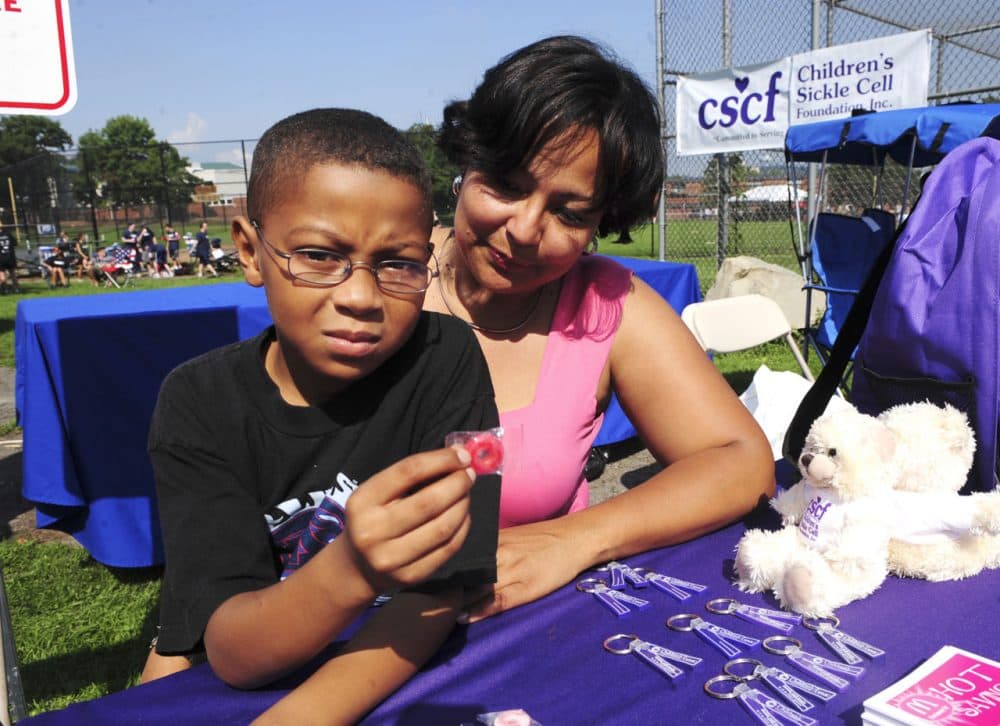Advertisement
How Scientists Pinpointed The 'Achilles Heel' Of Sickle Cell Disease
Resume
Sickle cell disease is a genetic blood disorder affecting about 100,000 Americans, mainly of African descent, and it can cause excruciating pain.
Treatments for the disease have improved in recent years, but there’s no broad cure — yet.
Now, scientists at the Dana-Farber Cancer Institute and Boston Children’s Hospital report they're progressing toward a possible gene therapy for sickle cell disease.
Guest
Carey Goldberg, co-host of WBUR's CommonHealth blog, which tweets @commonhealth.
More
CommonHealth: In Step Toward Genetic Fix, Scientists Pinpoint ‘Achilles Heel’ Of Sickle Cell Disease
- "What if scientists could reactivate long-dormant genes to replace the mutated hemoglobin? What if they could spur patients to produce a healthy form of hemoglobin that their bodies stop making soon after birth?"
Harvard Gazette: ‘Achilles’ Heel’ Of Sickle Cell Disease?
- "This stretch of DNA, called an enhancer, controls a molecular switch that determines whether a red blood cell produces the adult form of hemoglobin — which in sickle cell disease is mutated — or a fetal form that is unaffected by and counteracts the effects of the mutation."
Forbes: Sickle Cell Disease Highlights Racial Disparities In Healthcare
- "Pain from sickle cell disease crises is often under-treated as well. In part, this likely reflects racial and gender biases. Additionally, especially because the ischemic changes can’t be seen (unlike gangrene, for example, which is obvious), health care workers likely underestimate the person’s pain."
This segment aired on September 21, 2015.